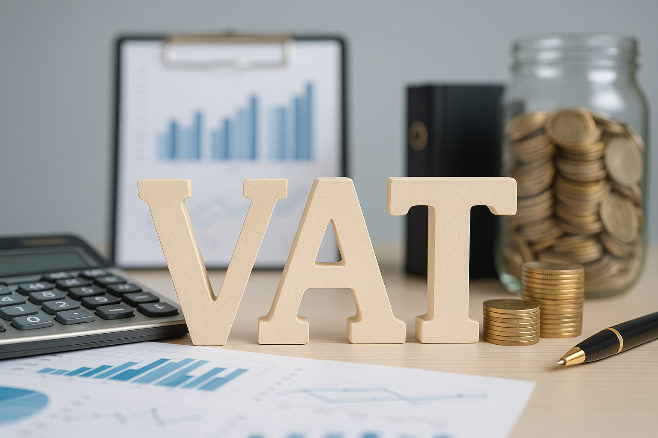
What is a VAT error, and how to correct it?
A “VAT error”, also known as “tax error, is an event that arises when a VAT-registered taxable person fails to set out the correct output VAT amount or fails to recover the correct input VAT amount. As a result of a tax error, the taxpayer will pay an incorrect amount of tax, i.e., underpaid or overpaid. In either case, the corrections need to be made. Here, you will learn everything you need to know about VAT errors and their solutions. Meanwhile, Jitendra Chartered Accountants (JCA), one of the top agents to provide VAT services in Dubai, can help you in error-free filings of your tax returns and seamless registration.
Tax Errors: Types and Corrections
Tax errors may occur in different circumstances and can be corrected as follows;
1. In Invoices
In invoices, the incorrect amount of tax being charged may cause errors. If the amount of tax charged is higher than usual, the supplier is liable to issue a credit note and adjust the tax likewise. For instance, when the supplier accidentally charges some amount of VAT on 0 rated supplies. He will issue the recipient a credit note.
On the other hand, if the charged VAT amount is lower than it should be, the supplier has to generate a new invoice and recover the correct amount. In both cases, the supplier has to make the necessary corrections.
You can consult VAT services in Dubai to get help with this.
2. In VAT return
When the tax return submitted to FTA contains an error and generates a different amount of tax return then it should be, e.g, lower output tax or higher input tax, the amount of tax return will decide how the error will be corrected.
For instance,
- If the tax value of the error is AED 10,000 or less, the error should be corrected in the next VAT return.
- If an error is found for a person who is now a VAT non-registered taxable person, it is essential to disclose the error voluntarily to the FTA, by filing a voluntary disclosure.
- Voluntary disclosure to FTA is also necessary if the tax value of the error is more than AED 10,000.
- The voluntary disclosure must be made within 20 working days after the taxable person became aware of the error.
3. In Assessment by the FTA
Assessment carried out by FTA may also contain errors and result in more or less payable tax.
Depending on the value of the error made by FTA, the error should be corrected in the same manner it was corrected by the taxable person, either in the tax return or by voluntarily disclosing to FTA.
VAT consulting services in Dubai might help you understand this better.
4. Error in Tax Refunds Application
A business eligible to ask for a VAT refund can also make an error in the refund application.
- Claim applications containing errors resulting in a more or less refundable amount should be voluntarily disclosed to FTA within 20 business days.
- If an error is made due to an incorrect tax assessment or return, the error value will decide whether it should be corrected through voluntary disclosure or adjusted in the following VAT return.
Correcting Errors via VAT Returns
Correction of error via VAT return should be included in the tax return for the period in which you discovered the error.
Correcting Errors via Voluntary Disclosure
There’s a voluntary disclosure form produced by FTA that will ask you about all the information that FTA needs to know about the error made, in order to make a decision.
Correcting Errors in VAT: Time Limits
For the correction of VAT errors, the FTA has set a 5-year time limit. This means the FTA can conduct an assessment for any errors that occurred within the 5 years, or the taxable person can disclose the error to the FTA that happened within the 5 years. The FTA will not conduct an assessment for any error in VAT return if five years have passed since the error was made. The taxpayer also does not need to disclose it.
However, in case of tax evasion or non-registration, tax assessment can be conducted within 15 years beginning from the end period when tax evasion occurred or starting from the date when the taxable person should have been registered with the FTA.
For better understanding, see the following examples;
Example 1:
- FTA uncovered a tax error in a registered taxable person’s history 6 years ago, but can’t run a tax assessment against him (as it is not a tax evasion case), and the error occurred more than 5 years after the end of the tax period.
Example 2:
- FTA realised tax evasion by a registered person 14 years ago. In this scenario, the FTA may order a tax assessment up to 15 years from the end of the tax period when the error was found.
Example 3:
- The FTA realised a tax error from 13 years ago of a non-registered taxable person. In this case, the FTA can assess and register the person for the tax that has not been paid yet.
How can Jitendra Chartered Accountants (JCA) help?
JCA has a highly efficient team of VAT consultants in Dubai, UAE, who are intensely devoted to helping businesses better understand and comply with business laws like VAT. Consult our skilled professionals today!


